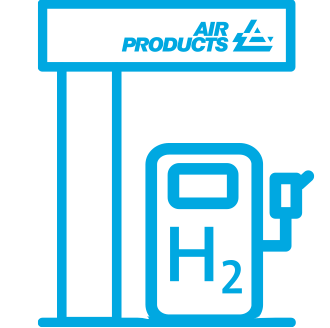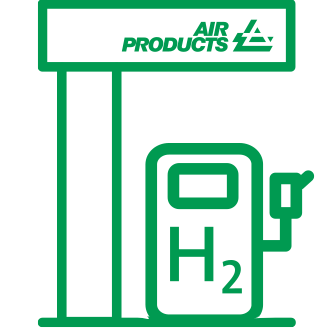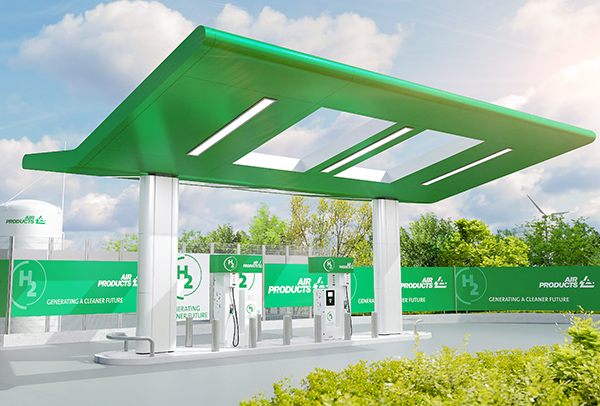Why Hydrogen
Building a cleaner, more sustainable energy future is one of the most critical issues facing our world today. The promise of renewable energy and electrification is real, but that alone cannot accommodate all the needs of daily living in the 21st century, while simultaneously growing our economy and achieving our climate goals.
Hydrogen is a simple and versatile molecule. It can store and transport energy, making it an essential low-carbon solution to address emissions from sectors requiring a high-density energy source, such as heavy transportation, steel making, or the production of chemicals, where electrification is not feasible or practical at scale.
As a result, global demand for hydrogen is expected to grow significantly.
Renewable hydrogen can be produced from renewable power via water electrolysis or from dissociation of renewable ammonia, which is one of the lowest carbon intensive H2 production pathways.
Low-carbon hydrogen can be produced using fossil feedstocks combined with carbon capture technologies allowing permanent sequestration.
These types of hydrogen are often referred to as zero-and low-carbon hydrogen, reflecting their carbon intensity characteristics. Hydrogen can be produced in locations with favorable conditions, and transported by pipelines and trucks, or overseas in the form of ammonia.
GENERATING A CLEANER FUTURE




 Full flexibility thanks to ranges of up to 400 or 600 km, depending on the vehicle type
Full flexibility thanks to ranges of up to 400 or 600 km, depending on the vehicle type  Fast refuelling in less than 10 minutes
Fast refuelling in less than 10 minutes  Small footprint even for large-scale refuelling infrastructure
Small footprint even for large-scale refuelling infrastructure Refuelling at 350 bar, 700 bar and liquid in the future
Refuelling at 350 bar, 700 bar and liquid in the future Over 30 years of experience in the operation of hydrogen refuelling stations
Over 30 years of experience in the operation of hydrogen refuelling stations  More than 250 filling stations designed and installed
More than 250 filling stations designed and installed  Global market leader in hydrogen
Global market leader in hydrogen Active for decades
Active for decades




